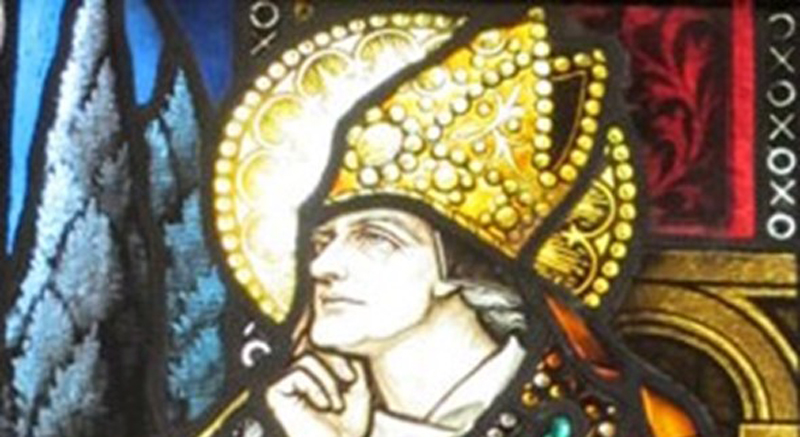(Eighth century)
Vergilius, Fergal in Irish, was an Irish missionary and astronomer.
In the “Annals of the Four Masters” and the “Annals of Ulster” Vergilius is mentioned as Abbot of Aghaboe, in Queen’s County, Ireland.
About the year 745, he left Ireland, intending to visit the Holy land, but settled down in France, where he was received with great favor by Pepin, then mayor of the Palace under Childeric III. After spending two years at Cressy, near Compiegne, he went to Bavaria, at the invitation of Duke Otilo, and within a year or two was made Abbot of St. Peter’s at Salzburg.
It was at the Abbot of St. Peter’s that he came into collision with St. Boniface. A priest having, through ignorance, conferred the Sacrament of Baptism using, in place of the correct formula, the words “Baptizo te in nomine patria et filia et spiritu sancta,” Vergilius held that the sacrament had been validly conferred. Boniface complained to Pope Zachary. The latter, however, decided in favor of Vergilius.
Later on, St. Boniface accused Vergilius of teaching a doctrine in regard to the rotundity of the earth, which was “contrary to the Scriptures”. Pope Zachary’s decision in this case was that “if it be proved that he held the said doctrine, a council be held, and Vergilius expelled from the Church and deprived of his priestly dignity.”
Unfortunately we no longer possess the treatise in which Vergilius expounded his doctrine. Two things, however, are certain: first, that there was involved the problem of original sin and the universality of redemption; secondly, that Vergilius succeeded in freeing himself from the charge of teaching a doctrine contrary to Scripture.
After the martyrdom of St. Boniface, Vergilius was made Bishop of Salzburg (766 or 767) and labored successfully for the upbuilding of his diocese as well as for the spread of the Faith in neighboring heathen countries, especially in Carinthia. He died at Salzburg, Nov. 27, 789. In 1233 he was canonized by Gregory IX. His doctrine that the earth is a sphere was derived from the teaching of ancient geographers.
Adapted by A.J. Valentini
